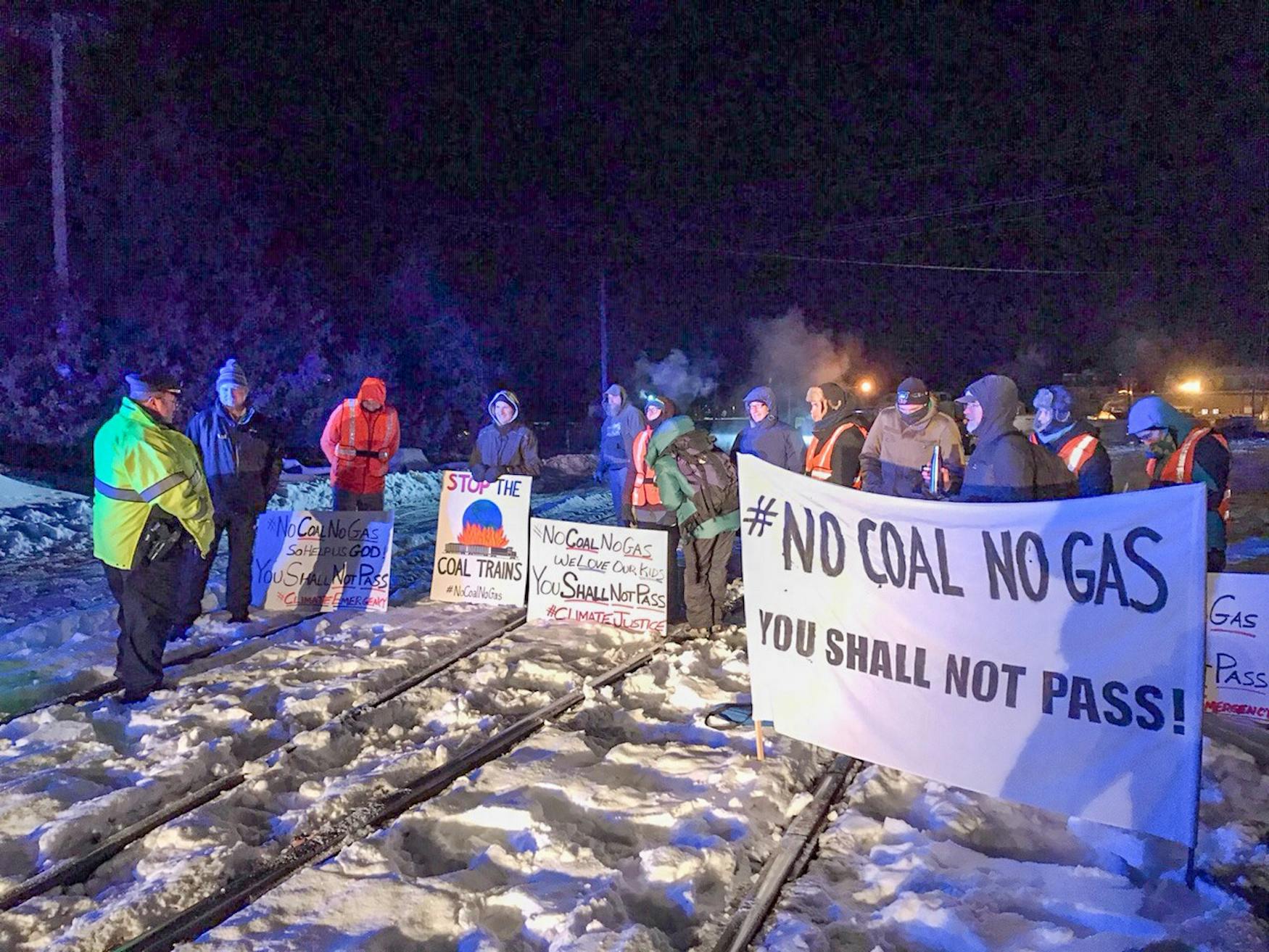Prof. arrested for blocking coal train in climate protest
Prof. Sabine von Mering was arrested for participated in a train blockade in protest of the use of fossil fuels. The charges were dropped.
Prof. Sabine von Mering (GRALL, ENVS), a longtime climate activist, was arrested on Dec. 8 for blocking a freight train carrying coal to Merrimack Station, the largest remaining coal power plant in New England, according to New Hampshire Public Radio.
This train blockade is part of the “No Coal, No Gas” campaign, which is organizing actions to limit and eliminate fossil fuel infrastructure in New England. Judge Margaret Guzman dismissed the charges against von Mering and others at the protest on Dec. 9, according to the Lowell Sun.
The largest protest of this campaign took place on Sept. 20 at Merrimack Station in Bow, New Hampshire, where 67 people were arrested for trespassing. Von Mering told the Justice in a Jan. 22 interview that she joined the “No Coal, No Gas” campaign following this protest at the request of the Climate Disobedience Center. Recently, this campaign has targeted freight trains delivering coal to Merrimack Station. The train blockade tactic was used at the Dec. 8 protest von Mering participated in. Protesters erected three blockades in an effort to stop coal delivery to Worcester, Ayer and Hookset, New Hampshire. “We managed to stop five [trains],” von Mering said. “I was involved in all of those blockades, but I only risked arrest [at] what we call the ‘Ayer train.’”
Independent System Operator New England manages and monitors Massachusetts’ energy, according to Mass.gov. ISOs are independent, not-for-profit organizations that are charged with maintaining electricity access at all times in the New England region. However, they do not prioritize clean energy, and activists such as von Mering want that to change. “I was honestly completely blown away [when I learned] that we are still burning coal in New England. I realized, not only are we burning coal, but we’re paying for it,” von Mering said. “We’re actually subsidizing this coal plant.”
Von Mering said that the goals of this protest were trifold: build a community, show that actions like this can be done and slow down the coal train. This protest, although directed at Merrimack Station, also made a broader statement against the actions of ISO New England. “It’s so interesting that I have been a climate activist for years, [but when] you block a coal train, everyone pays attention. This is sort of a signal,” von Mering said. “People actually pay attention when you do something radical like that.”
Although von Mering admitted nonviolent civil disobedience is not for everyone, she has encouraged that people get involved with climate-related issues. “Every student should understand that climate change will be the defining aspect of their lives and they need to be ready for this,” von Mering said. “You need to understand what it is, and you need to understand how to prepare for the consequences.”
Von Mering said that community is an essential component within fighting climate change. “We need to know each other and be comfortable with each other so that when the extreme weather events start happening, we have [people] to go to,” von Mering said. “We need to talk about this, so building community is a super important aspect of fighting climate change.”
She said that conversation and support are critical to maintaining sanity and effectiveness while undergoing this climate crisis, so she is planning a dance to strengthen the Brandeis community and encourage discussion about climate-related issues. “I want people to understand that there are so many things we can do [about climate change], but the one thing we cannot do is pretend it’s not happening. That is not an option,” von Mering said. “Business as usual is not an option.”



Please note All comments are eligible for publication in The Justice.